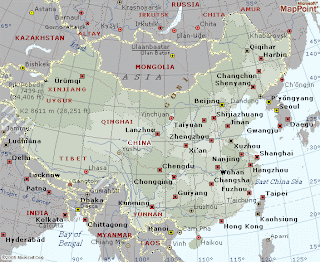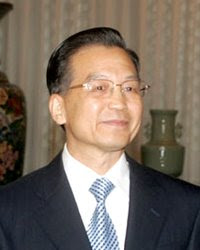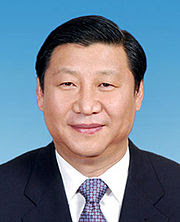Messed up Third World S*** Holes: These are the nations you probably don't even know exisit, or if you do, you probably only know their name (and most world leaders like it that way), but they do exist, and many of them are home to humanitanian crises so bad that you will be glad that you're biggest problem right now is waiting in line at the local DMV.
Nation Reports: These are reports of certian nations that while do not fall under the above catergory, but have many issues, and while it can be argued that some of the Third World nations have no effect on the Western World, these nations do.
How Can It Exist? These are nations that despite all the commanments of God, all the laws of physics, and all common sense, somehow still do exist, and we will look into how and why they do exist.
Meet Your Congressman: These are reports on those 535 men and women who make up the United States Congress. While most will be on corrupt, bizare, or downright dangorous congressmen, we will from time to time report an incredibly cool awsome member of Congress (yes they do exist).
Films You Must See Before You Die: As a film buff, I'm dissapointed that too many people refuse to watch films simply because it's in a forgien language. The point of this part of the blog is too ease your fears and show how international cinema can be incredibly awsome.
So, let's begin:
Nation Report: CHINA

This was originally going to be just about Tibet,but after doing research, I soon discovered that for once, the American media has been doing a decent job reporting what has been going on in Tibet (I guess Brittney Spears wasn't doing anything stupid that week). But at the same time, I began to see China as a whole and decided to give a whole overview instead.
To understand modern China, you must go back to 1949 with the establishment of the People's Republic of China under Chairman Mao Zedong. Under Mao's leadership, China quickly split with their fellow Communists in the Soviet Union and struck off on its own. Along the way China experienced the Great Leap Foward (1950's), which was supposed to give the peasants their own land and modernize farming, but it backfired and about 20 million Chinese peasants died of starvation. Then came the Cultural Revoluation (1960's), which brought the entire nation to a standstill, as mobs of mostly young (many in their teens) Chinese marching around in the name of progress beating up anyone who had a different viewpoint and getting rid out anyone who was opposed to it (as well as Mao). The government of China was also brought to a halt due to a nasty power struggle between Mao and other members of the goverment. During this period a large number of culutural and historical sites were torn down and the Chinese people were subjugated to the a whole number of awful movies, plays, and ballets that glorified the China under Mao.
After Mao died in the 1970's, there was a period of infighting within the inner party over who would succeed Mao. One of the main factions was the "Gang of Four" led by Mao's wife Jiang Quing, the other was led by Deng Xiaoping, who was known to be a moderate. Deng Xiaoping's faction would emerge victorious, and by 1980, China's leadership was revolving around Deng. Under Deng, China began to experiment with capitalist reforms, which led to the booming economy that is present today in China, espically on the East Coast. But as we all know in 1989, the Chinese government crushed a rebelling in Tibet and later crackdown on the democracy demonstration at Tiananmen Square.
In the 20 years since Tiananmen Square, China has undergone radical change. It's middle and upper classes are booming and many live a lifestyle simular to their Western counterparts. China has also gained two cash cows: Hong Kong and Macau. Hong Kong, formeraly owned by the British, is, along with New York, London, Paris and Tokyo, one of the financial centers on Earth (though China's own Shanghai is very quickly catching up), and Macau, formeraly owned by the Portuguese, is the casino capital of East Asia and has a thriving tourist trade. But underneeth all of that is a nation with many, many problems.
Let's start at the top and see who is running the most populous nation on Earth. Now in the inside murky world that is Chinese politics, it is sometimes hard to figure out who is really in control since traditionally the man at the top in name is not always the man at the top in fact. A good example of this is Deng Xiaoping, who never held the top offices, yet everyone knew he was the man in charge.
Currently at the top in both name and fact is this man, the most powerful man you've never heard of: President Hu Jintao
NOTE: In China, like most East Asian nations, the family name is always first and the personal name is always second, if you would meet Hu Jintao, you would address him as President Hu, not President Jintao
 Head of the Communist Party of China since 2002, President of China since 2003, and Head of the Chinese military since 2004, Hu is the man to deal with. Before becoming President, Hu was almost completely unknown outside the very top circiles of the Communist Party. Hu got his start in 1989 when he was sent out to Tibet to run the local chapter of the Communist Party. When the Tibetians rose up in revolt later on that year, it was Hu, not the regional governor who organized the brutal crackdown, and Hu's determination and loyalty to Bejing made him very popular with the government. However, the Tibetians didn't see it that way, and Hu's role in the harsh crackdown made him the most unpopular man in Tibet; later on when the Panchen Lama (the second most important spiritual leader in Tibet) died under mysterious circumstances, many in Tibet accused Hu of having the Panchen Lama murdered.
Head of the Communist Party of China since 2002, President of China since 2003, and Head of the Chinese military since 2004, Hu is the man to deal with. Before becoming President, Hu was almost completely unknown outside the very top circiles of the Communist Party. Hu got his start in 1989 when he was sent out to Tibet to run the local chapter of the Communist Party. When the Tibetians rose up in revolt later on that year, it was Hu, not the regional governor who organized the brutal crackdown, and Hu's determination and loyalty to Bejing made him very popular with the government. However, the Tibetians didn't see it that way, and Hu's role in the harsh crackdown made him the most unpopular man in Tibet; later on when the Panchen Lama (the second most important spiritual leader in Tibet) died under mysterious circumstances, many in Tibet accused Hu of having the Panchen Lama murdered.By the mid 1990's Hu was back from Tibet, and was being gromed by then President Jiang as a successor. Since comming to de facto power in 2003, Hu has proved to be devoted to the Communist Party of China. While contiuning the Free Market reforms to the economy, Hu has stepped up on cracking down on the democracy movment in China. In Hong Kong, Hu has worked hard to resitrict the limited democratic government it had inherited from the British. However, Hu has allowed the media of Hong Kong and Macau the same freedoms it had before their take over at the end of the 1990s. Of course, good luck find the webpage of a Hong Kong or Macau based publicaion on the Chinese mainland (though the Chinese government recently annoucned that the BBC's webiste - which is very critical of China - can be view uncensorded by ordanary Chinese citizens).
In international affairs, Hu has contiuned to take advantage of the West being bogged down in the Middle East and the Islamic World to expand China's influence in SouthEast Asia, Africa (and a lesser extent), South America. China's influence was seen last summer when it refused to take part in the world condemnation of the crackdown on the peacfull protests in Burma , and it was in part Chinese influence that prevented the rest of the world from being more harsh in their condemnation.
Hu has also proven to be a master of public affairs. While previous leaders in China were almost never seen by the public excpet on public holidays, Hu is seen on tv all the time, just like a Western head of government. Also, Hu has contiuned the process Jiang begain of putting more power into those at the top, and without a doubt, Hu is the most powerful President China has ever seen. However, this does not mean Hu has total power; President Hu still must share his power with a few other men at the top.
In his prviate life, Hu is reportedly into tennis and (I'm not making this up) ballroom dancing. He is married with several grown children.
Next up is former President Jiang Zemin

This man is the man most responsible in the creation of president day China. Jiang got his start in the 1980's when he was the mayor of Shanghai, a city whose population is about the same as the state of Florida. Jiang was a devoted follower to Deng Xiaoping's economic reforms, and it was in Shanghi where the first results of these reforms were seen. When the democracy movement Tiananmen Square demostartion caused a simular demostration in Shanghi, Jiang was quick to crush it. That same year, Deng Xiaoping rewarded Jiang by making him head of the Communist Party and President of China.
When Jiang took over the job of President, he had no real power. But as the 1990's progressed, and as Deng and his generation retired or died off, Jiang consoloated his power and by 1997, was the man in charge. Jiang, besides inventing the moderen Chinese presidency, made very profitable trade deals with the United States. Jiang also saw importanace of good PR and how a strong media (though not independent) can help the government's PR. Beginning in 2002, Jiang began to retire, handing off power to his groomed successor, Hu. Even though Jiang has not held any office since 2004, and is seen little outside of public events, it is assumed by most experts that Jiang still holds power and influence inside the Chinese government.
 Next up on our list of who's running China is this man, Wen Jiabao, who holds the job of Premir of China. Known for his "man of the people" appeal, the government has turned Wen into its most seen figure. While Hu is usually seen on tv making speaches and reviewing legislation, Wen is usually seen in factories and on farms working with ordanary Chinese dealing with their problems. Wen is also known as a conservative, and has never fell out of the party line. While the excent of Wen's actual power is unknown, it is agreeded that Wen is a potental successor to Hu.
Next up on our list of who's running China is this man, Wen Jiabao, who holds the job of Premir of China. Known for his "man of the people" appeal, the government has turned Wen into its most seen figure. While Hu is usually seen on tv making speaches and reviewing legislation, Wen is usually seen in factories and on farms working with ordanary Chinese dealing with their problems. Wen is also known as a conservative, and has never fell out of the party line. While the excent of Wen's actual power is unknown, it is agreeded that Wen is a potental successor to Hu. Another top leader in China today is this man, Zeng Quinghong, one of China's two Vice Presidents. Though Zeng does not hold any military posts, he is very close to the Chinese miliary. In the West, Zeng is known (if at all), for his role in the crackdown on the Falun Gong movement.
Another top leader in China today is this man, Zeng Quinghong, one of China's two Vice Presidents. Though Zeng does not hold any military posts, he is very close to the Chinese miliary. In the West, Zeng is known (if at all), for his role in the crackdown on the Falun Gong movement. Finnally we have this man, China's other Vice President, Xi Jinping. A recent arrival on the national scene in China, Xi is reported very close to President Hu; in fact, Xi's father was very important in helping Hu out in his early days in politics. Like Jiang, Xi is from Shanghai, and many see him as the other potental successor to Hu. Xi's wife, Peing Liyuan, is a nationally known folk singer in China, and if you want to know why I don't use wikipedia as a source, check out their entry on her.
Finnally we have this man, China's other Vice President, Xi Jinping. A recent arrival on the national scene in China, Xi is reported very close to President Hu; in fact, Xi's father was very important in helping Hu out in his early days in politics. Like Jiang, Xi is from Shanghai, and many see him as the other potental successor to Hu. Xi's wife, Peing Liyuan, is a nationally known folk singer in China, and if you want to know why I don't use wikipedia as a source, check out their entry on her.So now you've been introduced to the most powerful men in the world that you have never knew existed. In our next issue we will take a look some of the problems plaguing China.